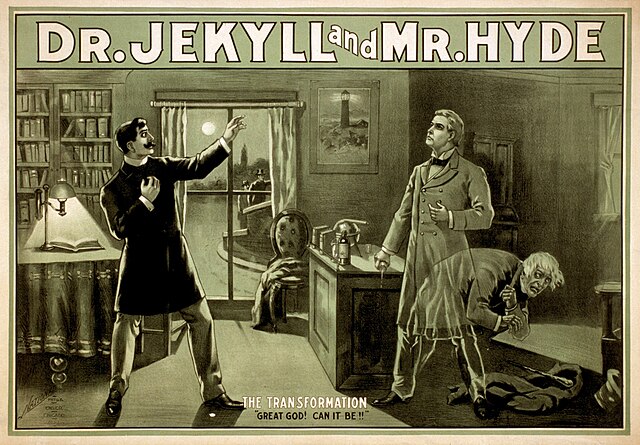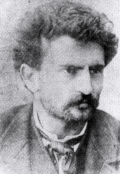Portal:Society
Portal:Society
A society (/səˈsaɪəti/) is a group of individuals involved in persistent social interaction or a large social group sharing the same spatial or social territory, typically subject to the same political authority and dominant cultural expectations. Societies are characterized by patterns of relationships (social relations) between individuals who share a distinctive culture and institutions; a given society may be described as the sum total of such relationships among its constituent members.
Human social structures are complex and highly cooperative, featuring the specialization of labor via social roles. Societies construct roles and other patterns of behavior by deeming certain actions or concepts acceptable or unacceptable—these expectations around behavior within a given society are known as societal norms. So far as it is collaborative, a society can enable its members to benefit in ways that would otherwise be difficult on an individual basis.
Societies vary based on level of technology and type of economic activity. Larger societies with larger food surpluses often exhibit stratification or dominance patterns. Societies can have many different forms of government, various ways of understanding kinship, and different gender roles. Human behavior varies immensely between different societies; humans shape society, but society in turn shapes human beings. (Full article...)
 Credit: Poster: National Prtg. & Engr. Co.; Restoration: PLW
Credit: Poster: National Prtg. & Engr. Co.; Restoration: PLWAn 1880s poster for Strange Case of Dr Jekyll and Mr Hyde, a novella by Robert Louis Stevenson known for its vivid portrayal of a split personality, wherein within the same person there is both an apparently good and an evil personality, quite distinct from each other. It was a huge success, with over 40,000 copies sold in the first six months after publication.
- ... that the "You meet the nicest people on a Honda" ad campaign established Honda's brand image in the US and helped the Super Cub (pictured) become the top-selling motor vehicle in history?
- ... that according to legend, Robert Kirk was taken to fairyland for revealing the secrets of the Good People?
- ... that Steven Gan took advantage of a loophole in Malaysian Internet law to create the country's first independent news source?
- 4 April 1930 - Foundation of the American Rocket Society, originally named the American Interplanetary Society
- 13 April 1564 - Pope Pius IV approved the Society of the Holy Name
- 19 April 1866 - First anti-cruelty law was passed since the founding of the American Society for the Prevention of Cruelty to Animals (Brooklyn chapter pictured)
- 22 April 2008 - IEEE Power Engineering Society changed its name to IEEE Power & Energy Society
Laozi (Chinese: 老子; pinyin: Lǎozǐ; Wade–Giles: Lao Tzu; also romanized as Lao Tse, Lao Tu, Lao-Tsu, Laotze, Laosi, Laocius, and other variations) (fl. 6th century BCE) was a philosopher of ancient China, best known as the author of the Tao Te Ching (often simply referred to as Laozi). His association with the Tào Té Chīng has led him to be traditionally considered the founder of philosophical Taoism (pronounced as "Daoism"). He is also revered as a deity in most religious forms of Taoist philosophy, which often refers to Laozi as Taishang Laojun, or "One of the Three Pure Ones". According to Chinese traditions, Laozi lived in the 6th century BCE. Some historians contend that he actually lived in the 5th–4th century BCE, concurrent with the Hundred Schools of Thought and Warring States period, while some others argue that Laozi is a synthesis of multiple historical figures or that he is a mythical figure. A central figure in Chinese culture, both nobility and common people claim Laozi in their lineage. He was honored as an ancestor of the Tang imperial family, and was granted the title Táishāng xuānyuán huángdì, meaning "Supreme Mysterious and Primordial Emperor". Throughout history, Laozi's work has been embraced by various anti-authoritarian movements. (Full article...)

|
Category Fictional society not found
Category Corporate groups not found
|
Category Philosophy and society not found
Category Wikipedia books on society not found
|
 |
Here are some tasks awaiting attention:
|
- Definition of Society from the OED.
- Internet Modern History Sourcebook: Industrial Revolution
- "The Day the World Took Off" Six part video series from the University of Cambridge tracing the question "Why did the Industrial Revolution begin when and where it did."
- BBC History Home Page – Industrial Revolution
- National Museum of Science and Industry website – machines and personalities
- Industrial Revolution and the Standard of Living by Clark Nardinelli - the debate over whether standards of living rose or fell.


































